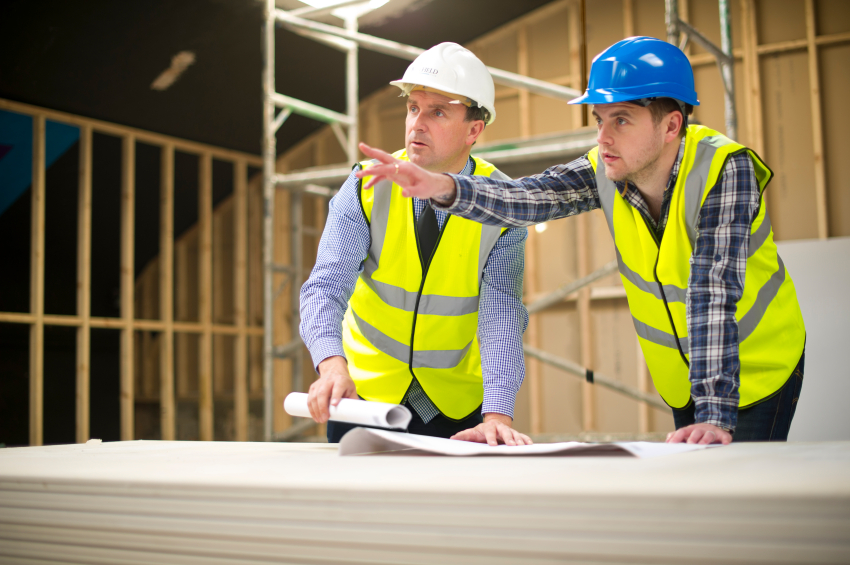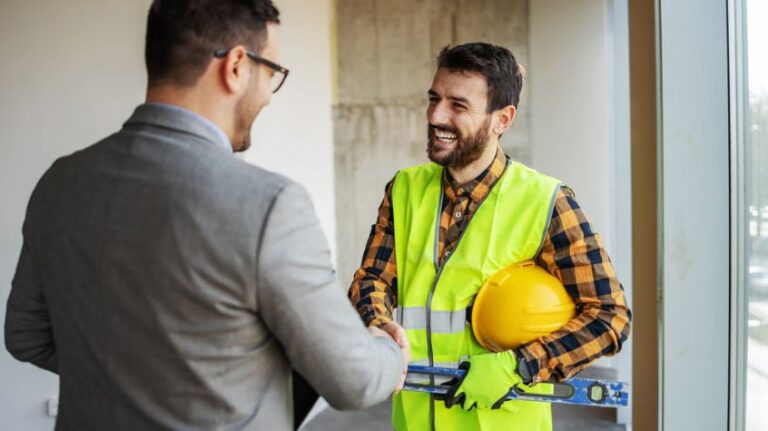Hiring a commercial general contractor is a critical step in any commercial building project. Whether you’re renovating an office, expanding a warehouse, or tackling a specialty construction job, choosing the right GC lays the groundwork for everything that follows.
If you’ve searched “hiring a commercial general contractor,” you’re likely wondering:
- What should I ask when hiring a commercial general contractor?
- How do I know if a general contractor is qualified and reliable?
- What does a commercial general contractor do, and why are they essential?
- How do I vet construction companies effectively?
- What should I expect from a general contractor throughout the project?
Let’s break it all down.
1. What Should I Ask When Hiring a Commercial General Contractor?
Asking the right questions up front helps you vet candidates thoroughly and avoid costly surprises later. Here are the essential questions to cover during your first conversations:
- What’s your experience with projects like mine? Look for relevant portfolio examples.
- Can you provide references or testimonials from past clients? Talking to previous customers can reveal reliability and communication style.
- How do you handle budgeting, scheduling, and communication? Understand how transparent and proactive they are.
- Do you manage permits, inspections, and code compliance? These details are critical for smooth approval and legal adherence.
- How do you approach unexpected changes or challenges during construction? Flexibility and problem-solving skills matter.
Pro Tip: Prepare a checklist of your questions before interviewing contractors and take notes. A good GC will appreciate your preparedness and answer confidently.
2. How Do I Know If a General Contractor Is Qualified and Reliable?
Hiring a commercial general contractor means evaluating both credentials and real-world performance. Vet them by:
- Review their project gallery: Do they have a proven track record with projects similar in size and complexity? They should have a Commercial Construction Gallery that illustrated their experience.
- Verify licenses and insurance: Confirm that the GC holds all necessary local licenses, certifications, and insurance coverage.
- Check references: Speak directly with previous clients to hear about on-time delivery, budget management, and professionalism. If you can’t reach a past client, review the GC’s testimonials.
- Transparency in bidding: Reliable contractors provide clear, detailed bids without hidden fees or vague costs.
- On-site supervision and quality control: Ask if they have dedicated staff onsite managing subcontractors and quality standards.
Want to spot warning signs early? Explore this guide on how to identify a bad contractor before you hire them.
3. What Does a Commercial General Contractor Do, and Why Are They Essential?
A commercial general contractor coordinates the many moving parts of your construction project, including:
- Permits, budgeting, scheduling, and design input
- Hiring and supervising subcontractors
- Ensuring site safety, quality control, and code compliance
- Serving as the client’s main point of contact
In essence, the GC is your project’s quarterback. Without an experienced general contractor, miscommunication and delays can snowball fast.
Want to understand how a GC can enhance your timeline and budget? Check out our article on Maximizing Project Efficiency with Commercial Construction Consulting.
4. How Do I Vet Construction Companies Effectively?

Learning how to vet construction companies can make or break your project. Here’s how:
- Portfolio Review: Do their past projects reflect quality, timeliness, and scale similar to yours? Browse our Commercial Construction Gallery to see examples of our work across industries.
- Client References: Ask about communication, issue resolution, and timeline accuracy. See our client testimonials as an example.
- Detailed Bids: Avoid vague proposals. Ask for clear cost breakdowns and timelines.
- Supervision Plan: Who’s overseeing the project daily? At Souder Brothers, we assign an on-site manager for quality control.
- Safety & Compliance: Ask about OSHA compliance, insurance, and municipal inspection protocols.
This level of vetting separates dependable commercial general contractors from risky hires.
5. What Should I Expect from a General Contractor Throughout the Project?
Great GCs do more than build. They guide and support. Here’s what you should expect:
- A clear schedule and budget baseline from the start
- Transparent updates and site meetings
- Prompt communication about changes or issues
- Supervised subcontractors and in-house craftsmen
- Proactive problem-solving, not finger-pointing
- Safe, clean, well-organized job sites
At Souder Brothers, we live by a simple promise: “Whatever it takes.” Our clients appreciate that we’re responsive, flexible, and solutions-focused from day one.
Why Choose Souder Brothers as Your Commercial General Contractor?
If you’re looking for a contractor who checks every box—experience, integrity, and a hands-on approach—we invite you to learn more about us.
- Over 40 years of experience in commercial general contracting
- Specialized in office renovations, design-build services, and specialty construction projects
- Responsive, in-house team available 24/7
We work in Pennsylvania and New Jersey and are proud to be a family-owned construction firm trusted by clients across industries.
Next Steps in Hiring a Commercial General Contractor
Ready to move forward? Here’s how to begin:
- Define your goals, budget, and timeline
- Shortlist contractors and schedule intro calls
- Ask smart questions and request detailed bids
- Compare references and past projects
Need help getting started? Contact us today, and we’ll walk you through the process.
See Our Work in Action
When hiring a commercial general contractor, it helps to see their experience. At Souder Brothers, our portfolio speaks volumes.

